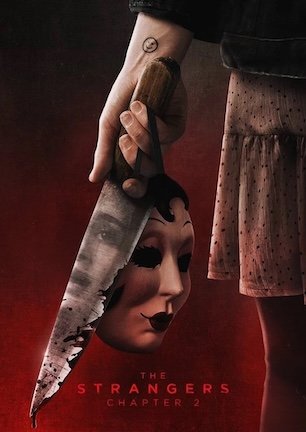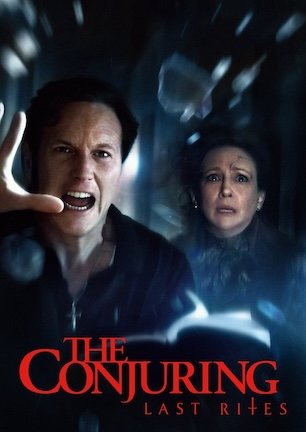Studio: A24
Director: Trey Edward Shults
Writer: Trey Edward Shults
Producer: David Kaplan, Andrea Roa
Stars: Joel Edgerton, Christopher Abbott, Carmen Ejogo, Kelvin Harrison Jr., David Pendleton, Griffin Robert Faulkner, Riley Keough
Review Score:
Summary:
Sheltered in a remote cabin while a plague ravages the outside world, a small family wrestles with paranoia when other survivors discover them.
Review:
A24 is the premier label for arthouse genre films. Releases including “The Blackcoat’s Daughter” (review here) and “The Witch” (review here) have made their name synonymous with macabre moods crafted by outside-the-box visionaries of indie cinema. Even A24’s mainstream dramas like “Moonlight” and “Room” deal in dark textures from daring voices, with Oscar-worthy aesthetics lushly slathered onscreen.
For lack of a more informed descriptor, theirs are the kinds of productions people who don’t know better refer to as “elevated horror,” because they need to disassociate that second term from its dirty word connotation with DTV slasher sequels and “found footage” fodder. Put more appropriately, A24’s pedigree precedes them. When their logo opens a film, you know you’re settling in for stylized suspense tailored to be psychologically affecting in ways multiplex movies rarely explore.
Such is the case with “It Comes at Night,” writer/director Trey Edward Shults’ tense treatise on death, regret, and how extreme fear can destroy a family. Based on the pretext above, it’s no shock that the film focuses first on atmosphere, and could use a bit of beef to bolster its slim story. But nail-biting performances and pointed production design present an undeniably unsettling portrait of paranoia sending sane minds into madness.
Paul, Sarah, and their teenage son Travis are still mourning the essential euthanasia of Sarah’s father Bud. In the wake of an unspecified virus splitting the world’s population into scared scavengers and infected corpses, their family was forced into seclusion to survive. Four is now three, as the trio remains holed up in their remote woodland home, behind a barred door protecting them from untold dangers outside.
Then Will arrives. At first an intruder, Will tries becoming a friend. The mysterious man has a story about searching for water for his own wife and son, but Paul can’t be sure how much of Will’s tale is true.
Despite Paul’s uncertainty, Sarah points out the reality of needing numbers. So Paul reluctantly retrieves Will’s family and apprehensively allows them into his home. As odd occurrences continue to keep everyone on edge, initial unease grows into uninhibited suspicions, placing both families atop a powder keg anxious to explode.
At the film’s post-premiere Q&A at the 2017 Overlook Film Festival, the audience asked many Qs while director Trey Edward Shults provided very few As. That’s because “It Comes at Night” is the kind of ambiguous experiment in eeriness with no right or wrong regarding how its ideas are interpreted. “What did (redacted) see in the forest?” “Was (redacted) really infected?” Shults coyly responded to every plot-related inquiry with an echo of, “that’s up to you.”
That’s frustrating news for those who prefer their terror to be tangible. Yet that is the movie “It Comes at Night” is: a dreamy, dreadful descent into disquieting darkness built out of unseen sights from cobwebbed corners of upended imaginations.
Usually, I have a short wick of patience for films where style overshadows narrative. What keeps “It Comes at Night” out of the trap of vapidity when cerebral substance comes into play, are the careful ways with which Shults composes creepiness. Cinematography is graceful about capturing grimness. Art direction infuses sadness in a Spartan setting punctuated by ominous imagery of red doors and dark hallways. Sinister sorrow surrounds this film with haunting claustrophobia that is effectively inescapable.
Energizing intensity are outstanding performances from Joel Edgerton, who I can’t recall ever being less than impressive, and Christopher Abbott, who should not be overlooked in any discussion of how the film fuels its fears. The Edgerton/Abbott battery is crucial to the subtle smolder, with each man alternating his aura between friendly and fierce for a terrific tug-of-war of tightening tension.
Should it not already be abundantly clear, “It Comes at Night” brims with the same brand of alienating artistic appeal that polarized patrons of “The Witch” or “It Follows” (review here). An insular setup also makes for small stakes suspense that doesn’t fully satisfy as a story, with unevenness in each individual’s importance keeping the balance off kilter. But anyone keen to the themes Shults challenges his audience to confront will find “It Comes at Night” living up to its title when it ends, yet its meaning continues weighing on the mind.
Review Score: 70






If a Vietnam War movie doesn’t include Creedence Clearwater Revival’s “Fortunate Son” on its soundtrack, is it even a Vietnam War movie?